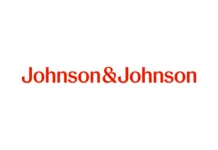In today’s digital age, omnichannel marketing has become an essential aspect of any successful healthcare marketing strategy. However, implementing an effective omnichannel approach can be challenging, especially when it comes to navigating the complex healthcare landscape.
In this article, we’ll explore some of the common challenges healthcare organizations face in their omnichannel marketing efforts and share strategies for overcoming them. We’ll also take a look at some unique examples of how the biggest names in healthcare are leveraging an omnichannel approach to marketing and what they’re doing differently from the rest.
Whether you’re a marketer, healthcare professional, or simply interested in healthcare marketing, this article is for you. Let’s dive in!
Why Omnichannel Marketing is Important for Healthcare
Omnichannel marketing has emerged as a powerful tool for the healthcare industry in recent decades. By providing a seamless and consistent patient experience across multiple channels, healthcare organizations can increase accessibility and engagement while improving efficiency and reducing costs. Below, let’s take a look at why omnichannel marketing is important for healthcare and how it can help organizations do everything from improving patient outcomes to boosting ROI.
Improved engagement through accessible marketing
Patients have different preferences for communication channels, and an omnichannel approach ensures that patients can access healthcare information and services in the most convenient way possible, whether that’s through email, social media, text messaging, or in-person visits. Additionally, the ability to personalize the marketing experience for patients that omnichannel marketing offers mean that healthcare organizations can ensure the right messages are received by the right people, increasing patient trust and engagement.
Increased efficiency
By implementing an omnichannel approach, healthcare organizations can streamline data management by centralizing patient data from multiple channels in a single database. This enables healthcare providers to access patient information more easily and provide more efficient care.
In addition, healthcare organizations can leverage technology to automate certain processes, such as appointment scheduling, reminders, and follow-up messages, saving time and resources while ensuring that patients receive timely and relevant information.
Improved patient outcomes
By collecting patient data from multiple channels, healthcare organizations can create personalized healthcare plans that meet the unique needs of each patient. This personalized approach can lead to better patient engagement, increased patient satisfaction, and improved adherence to treatment plans, ultimately leading to better patient outcomes.
Better ROI
Omnichannel marketing can help healthcare organizations boost ROI by improving patient engagement and loyalty, leading to increased revenue and retention rates. An omnichannel approach can increase brand awareness by providing consistent messaging and branding across all channels, leading to increased recognition and trust among patients.
Additionally, omnichannel marketing for healthcare can attract new patients by making healthcare more accessible and convenient, ultimately leading to increased revenue and business growth.
By leveraging technology and streamlining data management, healthcare organizations can also reduce administrative costs and allocate resources more efficiently, further boosting ROI.
Sounds great, right? It is! But it isn’t without its challenges. Let’s explore some of the speedbumps healthcare marketing teams might face as they begin implementing an omnichannel marketing strategy.
The Challenges of Omnichannel Marketing for Healthcare
Implementing a successful healthcare omnichannel marketing strategy takes planning, coordination, and a solid process for ensuring cross-departmental buy-in. Today we’ll cover some of the common challenges faced by healthcare marketing teams and how to manage them.
1. Ensuring consistency across channels
Consistency is crucial for an effective omnichannel marketing strategy in healthcare. To ensure a cohesive experience across all channels, healthcare omnichannel marketing teams can implement several strategies.
Develop a plan
First, developing a comprehensive marketing plan that includes clear guidelines for language, tone, and design that aligns with the organization’s values and brand identity.
Choose your CMS wisely
Second, utilizing a centralized content management system (CMS) can help healthcare organizations manage content across all channels and ensure messaging and branding are consistent.
Establish guidelines and train staff
Third, training staff on brand guidelines and messaging is critical, including healthcare providers, customer service staff, and other personnel who interact with patients.
Leverage technology and automation
Leveraging technology to automate processes, such as using chatbots or virtual assistants, can help ensure consistent messaging and branding.
Monitor and improve
Finally, healthcare organizations should regularly monitor messaging and branding across all channels to identify areas for improvement and adjust messaging as needed.
2. Managing customer data effectively (and ethically)
Healthcare marketers have a responsibility to manage customer data effectively and ethically to ensure patient privacy and comply with regulations. Here are some special considerations that healthcare marketers need to take when managing customer data:
HIPAA compliance
Healthcare marketers must comply with the Health Insurance Portability and Accountability Act (HIPAA), which sets strict guidelines for the privacy and security of patient health information. This includes ensuring that patient data is encrypted, that only authorized personnel have access to patient data, and that patients have the right to access and control their own data.
Informed consent
Healthcare marketers must obtain informed consent from patients before collecting, using, or sharing their data. This means that patients must be fully informed of the purpose of data collection, how their data will be used, and with whom it will be shared.
Data security
Healthcare marketers must take steps to secure patient data from unauthorized access, theft, or loss. This includes using encryption, access controls, and data backup and recovery systems.
Data governance
Healthcare marketers must establish clear data governance policies and procedures for managing customer data. This includes data classification, retention, and deletion policies to ensure that patient data is used appropriately and ethically.
Transparency
Healthcare marketers must be transparent about how patient data is collected, used, and shared. This includes providing patients with clear and concise privacy policies, data access and control mechanisms, and regular updates on how their data is being used.
3. Regulatory Compliance
Omnichannel marketing teams in healthcare organizations must comply with several regulatory requirements when implementing an omnichannel marketing strategy, in addition to the HIPPA compliance issues mentioned above, here are a few others to be aware of.
CAN-SPAM
The Controlling the Assault of Non-Solicited Pornography and Marketing (CAN-SPAM) Act establishes requirements for commercial emails, including healthcare-related emails. Omnichannel marketing teams must ensure that all emails are compliant with CAN-SPAM requirements, such as including a clear opt-out mechanism and accurate header information.
TCPA
The Telephone Consumer Protection Act (TCPA) regulates telemarketing calls, text messages, and faxes. Omnichannel marketing teams must ensure that all outbound communication via these channels is compliant with TCPA regulations, including obtaining prior express consent from patients and including opt-out mechanisms in all messages.
GDPR
The General Data Protection Regulation (GDPR) applies to any organization that collects and processes personal data of individuals in the European Union. Omnichannel marketing teams that target EU patients must comply with GDPR requirements, including obtaining informed consent for data processing, providing patients with access to their data, and complying with data breach notification requirements. Even though GDRP applies to businesses targeting the EU, many US-based organizations are also embracing GDPR compliance as a necessary and smart move in their marketing efforts.
Implementing an omnichannel marketing strategy in healthcare requires careful planning and coordination to overcome the common challenges faced by healthcare marketing teams.
To ensure consistency across all channels, healthcare organizations must develop a comprehensive marketing plan, utilize a centralized content management system (CMS), train staff on brand guidelines, leverage technology and automation, and regularly monitor and improve messaging and branding.
Additionally, healthcare marketers need to manage customer data effectively and ethically, including complying with regulatory requirements such as HIPAA, CAN-SPAM, TCPA, and GDPR.
By following these best practices and regulatory compliance guidelines, healthcare organizations can build patient trust, improve patient outcomes, and achieve their business goals through a successful omnichannel marketing strategy.
3 Examples of Successful Omnichannel Marketing in Healthcare Organizations
Some of the biggest names in healthcare have long been leveraging omnichannel marketing for both B2C and B2B marketing. Here are a few brands to watch and what’s unique about their approach to omnichannel marketing.
Mayo Clinic
In addition to its prolific website that has become a resource for patients and healthcare professionals alike, Mayo Clinic has implemented a data-driven approach to provide personalized healthcare recommendations to patients. For example, they use patient data to provide customized recommendations on diet, exercise, and lifestyle changes.
Cleveland Clinic
Long recognized as one of the top names in medicine, the Cleveland Clinic has leveled up its omnichannel efforts by adding an AI-powered chatbot which can answer patients’ questions and provide personalized recommendations based on their symptoms and medical history.
Banner Health
Banner Health has implemented an omnichannel approach that focuses on creating a seamless patient experience across all touchpoints. In addition to their mobile app that allows patients to book appointments, refill prescriptions, and view lab results, they have also implemented a virtual care program that allows patients to receive care remotely via video visits, chat, or phone calls.
Final Thoughts
The benefits of implementing an omnichannel marketing strategy in healthcare are clear, but it’s not without its challenges.
Healthcare organizations need to ensure consistency across channels, manage customer data effectively and ethically, and comply with regulatory requirements.
By developing a comprehensive marketing plan, utilizing a centralized content management system, training staff on brand guidelines, leveraging technology and automation, and regularly monitoring and improving messaging and branding, healthcare organizations can overcome these challenges and build patient trust, improve patient outcomes, and achieve their business goals.
Many successful healthcare organizations such as Mayo Clinic, Cleveland Clinic, and Banner Health have leveraged omnichannel marketing to provide personalized healthcare recommendations and innovations from AI-powered chatbots to creating a seamless patient experience across all touchpoints.
By following these best practices and learning from successful examples, healthcare organizations can leverage omnichannel marketing to move the needle on critical objectives that span financial, regulatory, and patient-centered initiatives.
















